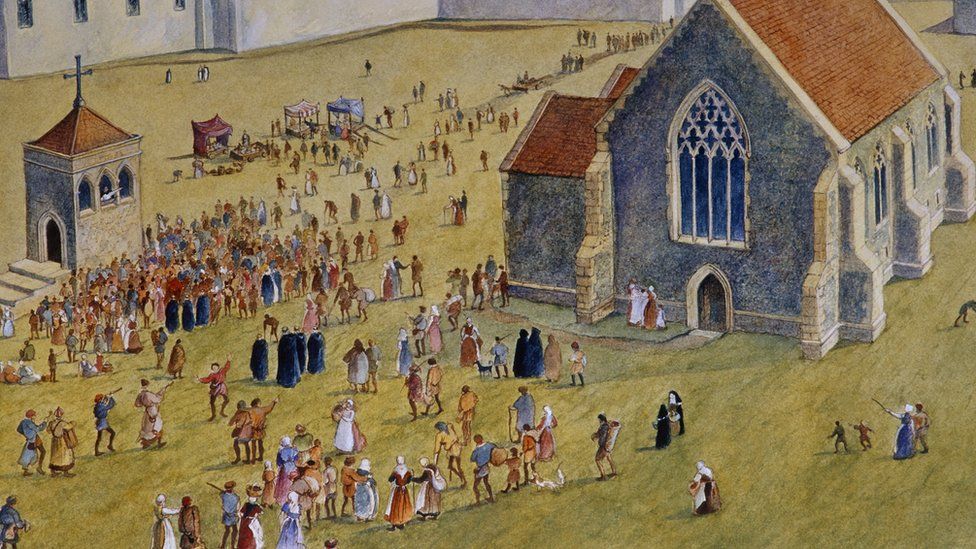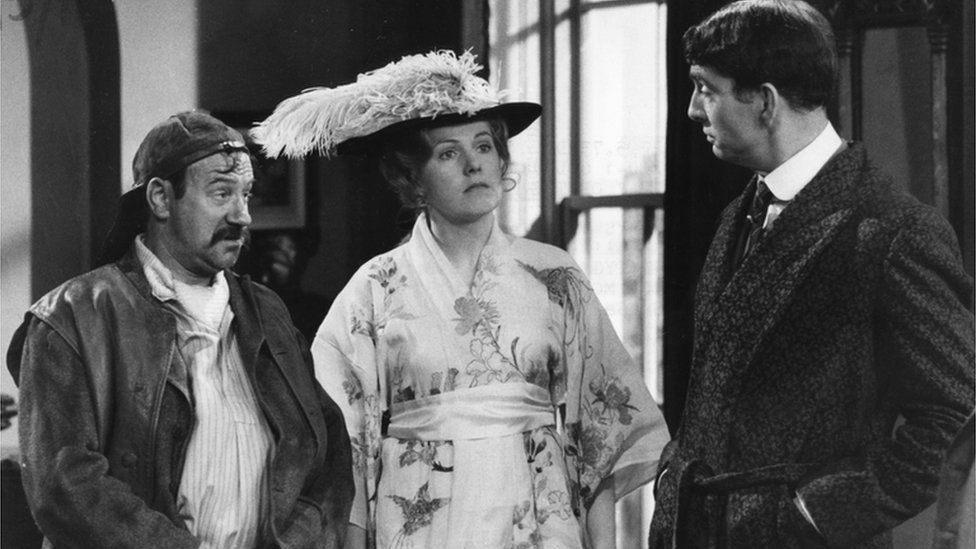By John Murphy
BBC News

Ever since the word Brexit was first coined in 2012, issues of migration, integration and independence have dominated public debate across the UK and Ireland.
Now we have reached the centenary year of the partition of Ireland, BBC journalist Fergal Keane has looked back at the profound influence, over many centuries, of the Irish in Britain in a new BBC Radio 4 podcast.
How the Irish Shaped Britain tells a story of contradictory narratives existing in parallel.
In Scotland, historian Professor Tom Devine explains that the digging and construction by Irish navvies and their successors through the 19th and 20th centuries helped to shape the Scotland we know today.

“The Irish built most of Scotland. They built the reservoirs, the ports, many of the cityscapes and not least, of course, the railways,” he said.
‘Delivered against the odds’
From the 1940s, the Irish were “indispensable” to the British construction industry, according to Ultan Cowley, author of The Men Who Built Britain.
“They were men with character, they were men with determination, toughness, tenacity. They delivered against very hard odds,” he said.
But the Irish shaping of Britain began many centuries ago. The oldest map of Ireland, produced by Ptolemy, dating from around 100 AD, shows tribal lands spanning both sides of the Irish Sea.
In Scotland, the Kingdom of Dal Riata linked County Antrim with Argyll. Irish traders, invaders and proselytising monks crisscrossed the Irish Sea.
‘An Irish kingdom’
Ogham stones, scattered across western Britain, are evidence of Irish settlements.
“These are not just passing Irish people – they’re not raiders having a boozy weekend and then going back to Ireland,” says the historian Dáibhí Ó Cróinín of University College Galway.
“They are an independent Irish, what we would call a kingdom.”
But it is in the spiritual realm that their influence was most profound, especially after the collapse of the Roman Empire.
‘English script, Irish hand’
In the 6th Century, St Columba founded his monastery on Iona in the Inner Hebrides and is credited with converting the Picts – a group of Celtic-speaking people – to Christianity.

Even the style of writing in Britain at that time was Irish, says Mr Ó Cróinín.
“Down to 1066 and the arrival of the Normans, the script of the English, the national hand of England, was in fact the national hand of Ireland.”
There was, of course, tension and violence too in Anglo-Irish relations.
In the 16th Century, the English Reformation was like a detonation in relations. Now, the Catholic Irish were seen as the enemy within.

Anti-Irish riots would erupt over the next few centuries, as in London’s Spitalfields in the summer of 1736, when Irish labourers were accused of under-cutting the wages of Englishmen.
Minstrel Boy
At the same time, Britain remained a place of opportunity for the Irish and some were making their way into the heart of the British establishment.
Thomas Moore, a grocer’s son from Dublin, wrote the popular ballad, A Minstrel Boy, to honour Ireland’s rebel dead.
It became one of the most popular songs of the British military and is played to this day at the annual Remembrance Day ceremony at the Cenotaph.
Irish writers and playwrights helped shape British culture, from William Congreve – English born but raised in Ireland – to Oliver Goldsmith and Richard Brinsley Sheridan, and later to Oscar Wilde and Pygmalion writer George Bernard Shaw, who was recruited by the BBC to lecture the English on how to speak English.

In politics, names like Edmund Burke, and the Dublin-born Duke of Wellington influenced the course of British history.
An estimated 30% of Wellington’s troops at Waterloo were Irish.

The impact of the Irish and their descendants on the British entertainment and music scene is also explored in the series, from the Beatles and the Gallagher brothers, to Eamon Andrews, Terry Wogan, Caroline Ahern and Paul Merton.
The story of how the Irish shaped Britain is one contradictory narratives existing in parallel. It is a story of rejection and assimilation, of hatred and tolerance, of tearing down and building up.
How the Irish Shaped Britain, presented by Fergal Keane, is now available on BBC Radio 4 and BBC Sounds.
- Can we bring early Irish voices back to life?Published18 August 2020



